
OUR FACILITATION TEAM
Every Academy program is presented by a team of educational professionals; who have spent years in higher education and specialize in leadership development.
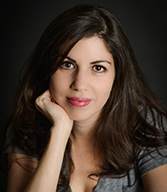
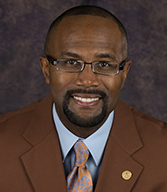
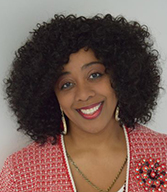
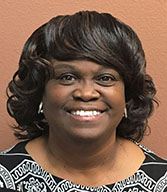
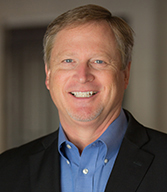

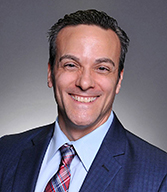
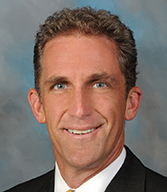
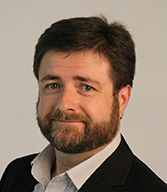
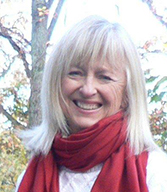
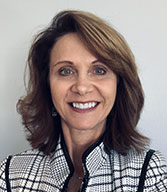
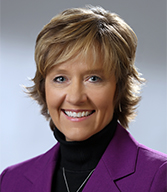
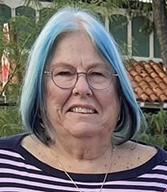
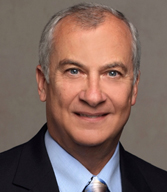
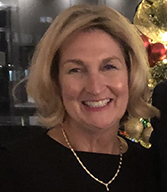
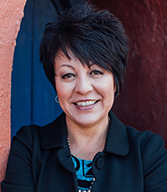
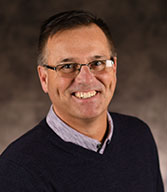
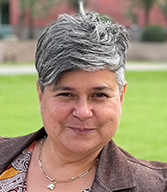
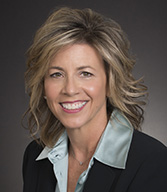
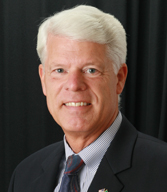
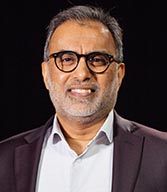
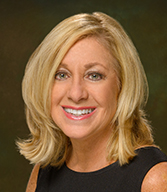
Corey Campbell

Which Academy Program(s) did you complete? Why did you choose this professional development experience? How has it impacted your career and life?
I completed the Florida Foundational Academy 2012-2013, and the Florida Advanced Academy 2015-2016. When taking an Organizational leadership course, one of my professors recommended attending a Chair Academy conference. The following year, I attended the conference in Phoenix and was really impressed. I had an opportunity to attend the Florida Foundation Academy later that year and the rest is history. The Chair Academy has impacted my career by allowing me to repeatedly put “tools” in my leadership “toolbox”. I have used concepts from conference, foundation and advanced academy in my career when working with students and/or colleagues. The Chair Academy helps me to remain a true lifelong learner.
When did you become an Academy Facilitator? Why? What have you learned along the way?
My first facilitator experience was in 2017; I was really intrigued about facilitating after completing the foundation academy. I believe the Chair Academy interprets theoretical and practical concepts of leadership and demonstrates methods to make those concepts applicable in real life situations. During my journey, I learned that any moment within a day can be learning opportunity. Leadership is continuous, it cannot be done alone and is more so based on influence than position. Everyone has a story, and the power of active listening is monumental.
How do you continue to grow and develop as a transformational leader?
Having a growth mindset, innovation, and trying to maintain a healthy attitude are some ways I attempt to continually grow and develop. Participating in mentorship as both a mentee and as a mentor has also assisted with broadening my leadership scope. Reading, writing, striving to stay current with best practices and having a grateful heart have also cultivated my growth and development in my leadership journey.
Tracye Davis

Which Academy Program(s) did you complete? Why did you choose this professional development experience? How has it impacted your career and life?
I attended the in-person Great Lakes Foundation Chair Academies in Michigan at Henry Ford College (Dearborn, MI) in 2022 and 2023 facilitated by Richard Strand and Ann Krause-Hanson. I also had the opportunity to attend and shadow Scott Geddis for the 2022 and 2023 Virtual Foundation Programs. This professional development experience chose me! As a newly hired employee focused on performance, development, and engagement for the College, I told my boss (Dr. Lori Gonko) that we needed to begin facilitating a leadership institute for our supervisors, managers, and rising stars. It was one of those “hold my beer” moments. A Foundation Program graduate herself; we discussed bringing The Chair Academy back to Henry Ford College. Pandemic restrictions were slowly being lifted, and the timing was perfect for us to resume holding sessions onsite. I was recruited to assist in the planning from the College side and loved every aspect of the program. Every single tool is an asset in my personal and professional life.
When did you become an Academy Facilitator? Why? What have you learned along the way?
I became a Facilitator in 2023. Richard, Ann, and Scott, all allowed me to co-facilitate portions of the Session Two module dedicated to Inclusive Leadership. As a DEIB/SJ practitioner, having conversations about how high-performing organizations understand the connections between creating and maintaining a culture of inclusion and belonging are key priorities for me. I have been facilitating learning and development opportunities for most of my professional career, and although it is not a surprise, I am always excited by how much I continue to learn from my fellow facilitators and from our program participants. Along the way, I have also learned to breathe, be flexible, accept, and quickly adapt to change. I used to want everything planned and executed perfectly, and life (and learning) doesn’t work like that. Of course, we have a script, curriculum, and content to cover. Of course, we are responsible for metrics, KPIs, budgets, outcomes, etc. However, one of our greatest gifts as leaders and facilitators is to embrace those organic lightbulb moments that spark rich conversations, an even deeper grasp of the concepts, and lead to collaborative and practical real-world application with amazing results. Some of my biggest successes have come from “failing forward” and learning an unexpected lesson.
How do you continue to grow and develop as a transformational leader?
I know it sounds cliched, but I really do believe in being a lifelong learner. I enjoy being a student. I love to read. I take courses, listen to lectures and podcasts, watch Ted Talks and informational videos, and listen to audiobooks when flying or driving. However, I find that growing as a transformational leader is less about formal learning and more about being self-aware, developing our ability to listen, building strong relationships, remaining curious, and having a healthy dose of humility to remind us that we don’t know everything.
Jacque Gaiters-Jordan

Which Academy Program(s) did you complete? Why did you choose this professional development experience? How has it impacted your career and life?
I completed the Foundation Program in 2017. I attended week 1 in New Mexico, and due to work obligations, transitioned to the NELDI session for week 2 to complete the Academy. The Chair Academy was recommended to me by a colleague, and it has made a significant impact on my professional development. The training provided during the Foundation Program strengthened my skills as an academic leader and prepared me for increased supervisory and team-building responsibilities as I transitioned from a mid-level to a senior leadership position.
When did you become an Academy Facilitator? Why? What have you learned along the way?
I became an Academy Facilitator in 2018. As an experienced educator and administrator, I welcome the opportunity to be a part of the leadership journey of early and mid-career professionals in higher education. The training material used by The Chair Academy is frequently reviewed and updated to best reflect current professional development needs. As I facilitate training for others, I am constantly reminded that to be a leader, you must be committed to life-long learning.
How do you continue to grow and develop as a transformational leader?
Transformational leadership requires a willingness to be a reflective leader. I attend the Chair Academy conference as well as engage in professional development through organizations such as the Western Interstate Commission for Higher Education (WICHE), the American Association of Community Colleges (AACC) and the League for Innovation in the Community College. I continue to grow and develop as a leader by leading and investing in the professional development of others.
David Gatewood

Which Academy Program(s) did you complete? Why did you choose this professional development experience? How has it impacted your career and life?
I was a participant in the inaugural State of Michigan Chair Academy Foundation Program in 1999-2000, hosted by Kellogg Community College in Battle Creek, Michigan. Each of the 31 members of Michigan CC Association nominated two managers to attend; I was given the opportunity by my president to represent Washtenaw CC in Ann Arbor. Even now, hardly a day goes by that I don’t utilize the knowledge and tools I gained in that first Academy experience and all the subsequent Academy programs and conferences I have participated in for over 20 years.
When did you become an Academy Facilitator? Why? What have you learned along the way?
The Chair Academy I first participated in was facilitated by Dr. Gary Filan, the founder and Executive Director of the Chair Academy. During that Academy experience, I was studying for my PhD in Higher Education Research and working at the neighboring CC. I expressed great interest in the work of the Academy given my background and was asked by Dr. Filan to join the facilitator team. Along the way I have learned and learned … and learned that leadership growth is a limitless opportunity to help make a positive difference not only in education but in all aspects of our lives.
How do you continue to grow and develop as a transformational leader?
As an Academy facilitator, I work hard to familiarize myself with changes in the theories and resources found in Academy materials. I also learn as much or more than most program participants with each and every cohort I help facilitate! Evolving theories, models, and practices are the foundation of leadership development and the Academy programs: experiment, fail, learn, and repeat continues to be my transformational leader mantra.
Scott Geddis

Which Academy Program(s) did you complete? Why did you choose this professional development experience? How has it impacted your career and life?
I graduated from the Chair Academy Foundation program in Denver in 2004 and an Advanced Academy in 2005 in Phoenix. Attending these Academies was a life changing opportunity. Not only did what I learn from the facilitators and other participants allow me to be a much more effective leader at my college it provided ways of thinking and acting that I use every day as a consultant, a parent, a grandparent, and as a spouse.
When did you become an Academy Facilitator? Why? What have you learned along the way?
I was fortunate to be offered the opportunity to join the Academy Facilitator Team in 2008. My experiences as an Academy facilitator have given me an opportunity to engage with and get to know many wonderful people around the globe, to share with them some of my experiences, and, most importantly, to learn many life and leadership lessons from them.
How do you continue to grow and develop as a transformational leader?
I am a lifelong learner and continue to grow and develop as a transformational leader in my own life. I addition to being an avid reader I learn something every time I facilitate an Academy or engage with one of my consulting clients.
Chris Gherardi

Which Academy Program(s) did you complete? Why did you choose this professional development experience? How has it impacted your career and life?
COMING SOON
When did you become an Academy Facilitator? Why? What have you learned along the way?
COMING SOON
How do you continue to grow and develop as a transformational leader?
COMING SOON
Lane Glenn

Which Academy Program(s) did you complete? Why did you choose this professional development experience? How has it impacted your career and life?
I was a participant in the 1999-2000 Michigan Academy. At the time, I was transitioning from faculty into my first administrative role at Lansing Community College in Michigan. The college’s provost at the time, Pat Keir, invited interested faculty and staff to apply to attend the Academy. A dean at the college who became my mentor in the Academy, Anne Cauley, encouraged me to apply.
To this day, and I have participated in many other leadership programs since then, that Foundation Academy was the single most important professional development experience of my career. It was in the Academy that I first recognized my goal to become a college president one day, and it was through the Academy’s strong emphasis on Transformational Leadership skills that I began to develop the leadership qualities that would get me there.
When did you become an Academy Facilitator? Why? What have you learned along the way?
I became an Academy facilitator in 2001, not long after my experience as an Academy participant. Gary Filan, the Academy’s founding executive director, was one of the facilitators for my Michigan Academy, so we got to know each other pretty well. Gary enjoyed my presentation skills (I have a background in the theatre) and recruited me to the facilitation team.
I was new in every way back then, with a lot to learn. Thankfully, I had some amazing facilitator mentors along the way, people like Gary, Idahlynn Karre, Bill Lamb, Pam Mauro, Ken Robson, Richard Strand and others who continue to influence me today.
In more than twenty years of Academy facilitating, I have learned more than I could possibly list in a couple of paragraphs. Three important lessons include: I have become a better classroom teacher by learning how to design and deliver curriculum for adult learners. I have become a better leader by constantly learning about effective leadership skills. And I have become a better person by striving to practice the essential elements of transformational leadership, with its focus on better understanding, supporting, and developing other leaders.
How do you continue to grow and develop as a transformational leader?
I still enjoy facilitating Academies when I have the opportunity. I always return to campus with new leadership skills and good ideas from participants for my own college.
As a college president now, I have also been able to send many participants over the years to Foundation and Advanced Academies and have served as a mentor to many of those participants. That experience is at the heart of transformational leadership.
Gerard Glennon

Which Academy Program(s) did you complete? Why did you choose this professional development experience? How has it impacted your career and life?
Melbourne 2011 – 2012. The Academy was very relevant to what I was doing in my professional life at the time. I had heard about the Academy over many years and worked with many graduates, so when the opportunity arose, I certainly jumped at it.
It has impacted me through the content, but also through engagement with participants and facilitators around the world. I learn from every conversation and engagement with facilitators and participants.
When did you become an Academy Facilitator? Why? What have you learned along the way?
2016. I became a facilitator because of a strong interest in personal and professional development and a passion for helping people on their personal leadership journey.
I have learned that while leaders experience similar challenges across the world, every individual development journey is different.
How do you continue to grow and develop as a transformational leader?
I read and listen, but most importantly I watch people I respect and admire as people focused leaders. I learn from how they engage and inspire other to be their best self. This is what I hope to bring to every development opportunity I facilitate, including formal delivery and one-on-one coaching.
Valerie Grabove

Which Academy Program(s) did you complete? Why did you choose this professional development experience? How has it impacted your career and life?
In 2006, I completed the Foundation Academy, and in 2011, I completed the Academy of Advanced Leadership. My learning throughout the Academy was intense, indeed, transformative, and I still have a relationship with my mentor 18 years later!
I have been engaged in educational leadership development for more than 25 years, whether I was studying and researching, designing and developing programs or facilitating opportunities for leadership learning. And that was how I found the Leadership Academy offered through the Chair Academy. As a leader responsible for educational and organizational development at an Ontario Canadian College, I had often reflected on the differences of development programs that created change and transformation and those that didn’t. I was looking for leadership development programs that were meaningful, indeed transformational, for my own learning as well as for those I worked with. Learning with the Leadership Academy Program along with a variety of other educational leaders in our cohort created a rich opportunity to reflect, learn, develop and grow. I learned so many new and different perspectives as we shared our experiences and challenges. The learning will never end; it is a lifelong journey.
I had heard many reviews that extolled the virtues of the Leadership Academy but before I could sponsor and market a program that requires substantial commitment of time and energy, I chose to experience the program for myself. I am so glad I did!
When did you become an Academy Facilitator? Why? What have you learned along the way?
By 2011, I was an ardent fan of the Leadership Academy and the potential the program holds for all college leaders. I enthusiastically accepted the opportunity to facilitate that same year. I appreciate and endorse the underlying values and principles of the program. I value the space the program offers for reflection and growth and, most importantly, I learned to recognize the significance of personal introspection of leadership development. So often, leadership is discussed and explored as a topic, cognitively. But leadership development is truly a personal journey, one that is intentional, conscientious and on-going. The more I have explored the tenets of leadership development, my own leadership voice is increasingly more authentic.
How do you continue to grow and develop as a transformational leader?
Leadership development is invaluable because it contributes to the development of personal, interpersonal and organizational capacity. I study, reflect and embrace opportunities to grow through a variety of projects, mostly educational projects. I continue to facilitate programs with the Academy because I am committed to serving college colleagues as well as our students (which I feel are mutually inclusive). I learn more each time I facilitate with new groups and am committed to supporting the growth of our educational leaders who contribute so much to education and our future.
Margo Keys

Which Academy Program(s) did you complete? Why did you choose this professional development experience? How has it impacted your career and life?
My experience with the Chair Academy began when I enrolled and completed the WLDI Foundation program and the Florida Advanced Academy. My passion and strengths center around leadership development, both for myself and helping others understand and develop their leadership expertise. With a Master’s in Training and Development and a Ph.D. in Workforce Development, my research interests have focused on talent and leadership development.
When did you become an Academy Facilitator? Why? What have you learned along the way?
In 2009, I became an Academy facilitator and have worked with leaders in Canada and the U.S. since that time helping to uncover their potential and hone their leadership practices. Over this time, I have learned about the exceptional potential individuals have and the remarkable ways they can grow through adversity with ample supports and coaching. I have realized the importance of self-care and wellbeing which is essential to maximize the potential that exists within every individual.
How do you continue to grow and develop as a transformational leader?
As an avid reader and practitioner, I have continued to gain competence and experience as a leader and developer. After becoming a Certified Executive Coach, I attained a number of certifications in specialized assessments (DISC, PXT) and become a PROSCI change practitioner. Now I can leverage these skills to help emerging leaders understand and hone their own leadership practices.
Judy Korb

Which Academy Program(s) did you complete? Why did you choose this professional development experience? How has it impacted your career and life?
I attended the Colorado Foundation Academy in 2004-2005 and the Minnesota/Texas Advanced Academy in 2010-2011. I was referred to the program by colleagues I worked with that were also facilitators of the programs. The most impactful thing for me has been the professional network gained from my colleagues in the programs I attended. The content was great and there were a lot of takeaways to apply in my leadership positions throughout my career.
When did you become an Academy Facilitator? Why? What have you learned along the way?
I became an Academy Facilitator in 2005. Leadership development has always been my passion. My minor in my Ph.D. program was organizational development and facilitating the academy leadership programs allows me to keep current with leadership literature as well as challenges and opportunities. I learn something every single time I facilitate an Academy – from the participants and my colleagues. I always considered facilitating the program to be one of my own professional development opportunities.
How do you continue to grow and develop as a transformational leader?
I teach and do consulting on leadership development topics. Working with students and clients provides an opportunity to keep up with current, relevant literature and hands-on application of strategies for transformational leadership.
Ann Krause-Hanson

Which Academy Program(s) did you complete? Why did you choose this professional development experience? How has it impacted your career and life?
My first academy experience was the Foundation Academy/Wisconsin Leadership Development Institute (WLDI) in 2002-2003. I had just moved from being a faculty member to a dean position and needed practical information and the opportunity to network with others newer to leadership positions. The WLDI experience was life and career changing for me. I learned that being visible and available to those I work with is critical to success as a leader. Above all, be authentic! I earned 9 credits toward my PhD at UW-Madison in Educational Leadership and Policy Analysis by using the competencies attained through my participation in the academy. I was able to complete my degree in 2009. My second experience was the Advanced Academy (the very first cohort) in 2005-2006. That opportunity, along with my continued contact with one of my original facilitators, afforded me the occasion to become a facilitator for the Academy. I can travel, meet, and learn from other professionals in higher education.
When did you become an Academy Facilitator? Why? What have you learned along the way?
I became a facilitator in 2006 upon recommendation from my 2002-2003 WLDI facilitator and I facilitated at WLDI that year. From there I have done 2-3 academies (foundation and/or advanced) each year. One year I did 8! Having left the classroom in 2000, facilitation has fed my need to teach and learn. I have met so many higher education professionals over the years and have learned from them all. Since this is such a shared experience, it is so valuable to experience different cultures, mindsets, resources, and more at each academy. In addition, the academy curriculum is regularly updated to keep current with trends in leadership and higher education. Staying current is very important to me.
How do you continue to grow and develop as a transformational leader?
I am excited to serve as a mentor to many new and experienced leaders over the years. Keeping in touch with what is happening on campuses is vital to being a good facilitator. Attending conferences and reading new books with varied approaches to leadership, communication, strengths, diversity, and more also adds to my continued development.
Bill Lamb

Which Academy Program(s) did you complete? Why did you choose this professional development experience? How has it impacted your career and life?
I was a graduate of the first program in in 1994 in Prescott, AZ. I had attended the conference in Feb. and Gary announced this opportunity in Aug. I was sitting with the Staff Development director at JCCC and told her I would like to go if she needed anyone. She asked me to go and funded my first year. Interestingly, I had no idea it was a two-year program, so I had to scrape funds to make it to the second year. I was an English department chair when I attended the program, and I doubt that I would have become an associate dean, dean, and vice president if it were not for the skill and development provided to me by the experience.
When did you become an Academy Facilitator? Why? What have you learned along the way?
My first facilitation experience was in the summer of 1995, a year after I graduated from the program. I wanted to become a facilitator because I believed in the program and the first group was primarily from my cohort. Gary was reluctant to use me and my friends convinced him I would be a good addition to the team. It was a fluke that I ended up with the 1995 New York/Ontario program, along with Ken Robson. Along with tons of books I probably never would have read, I learned a lot about people and how important relationships can be to a healthy and happy life.
How do you continue to grow and develop as a transformational leader?
Even though I am a retired academic vice president, I have lots of opportunity to mentor and help others through the Academy and my work with the Higher Learning Commission. I still teach for Kirkwood, Composition I and II. With three degrees in English, I love to read and write which keeps me busy.
Pam Mauro

Which Academy Program(s) did you complete? Why did you choose this professional development experience? How has it impacted your career and life?
Proud Foundation Academy Grad- 2004. Equally Proud Advanced Academy Grad - 2011.
I was introduced to The Chair Academy by my wonderful mentor. And as all great mentors do, he saw a strength in me that he knew could be developed through the Academy experience. It completely changed the way I approached teaching, working with my colleagues and leading my Department. My professional life became a source of great joy.
When did you become an Academy Facilitator? Why? What have you learned along the way?
I facilitated my first Academy in 2005. Approximately 50 Academy’s later, here’s what I know. Deeply listening to what the participants have to say is the foundation to productive discussion. We are there to help them speak their truth and share their experiences in meaningful, memorable, and respectful ways. Modeling that behavior, creating community and a sense of belonging, keeping the sessions on time and documented are next. Equally essential is to take advantage of all the humorous and light moments that come up (and they come up often!) All of these attributes make an Academy week a truly transformational experience for our participants.
For me personally, I cherish the friendships I have with my Academy colleagues. They are all wise and beautiful human beings and I love belonging to this group.
How do you continue to grow and develop as a transformational leader?
I grow by listening to my esteemed Academy colleagues, David Gatewood and Rose Marie Sloan!
Additionally, I read about business news and trends in daily national newspapers. I like to compare how industry leaders are working to keep relevant, innovative, distinctive and cost effective to how we operate campus life. In turn, I love to challenge my friends in business to adopt the transformational leadership essentials we use in education.
Ted talks are inspirational and great fun to listen to as well!
Bernadette Montoya

Which Academy Program(s) did you complete? Why did you choose this professional development experience? How has it impacted your career and life?
I completed both the Foundation and Advanced Academy programs and both were highlights of my own professional development throughout my career in Higher Education. I don’t know that I chose the Academy, but rather, it chose me. I received a notice in my mailbox one day advertising the Foundation Program and after receiving the necessary approval I registered for the program. It was the best decision I ever made, and throughout the years I have supported members of my own team to attend. What I have learned from both programs continues to enrich my professional and personal life.
When did you become an Academy Facilitator? Why? What have you learned along the way?
I became a Facilitator in 2010 after being asked to consider the role. I received my training and shadow experience from two facilitators that I deeply admired. I have learned that my role as a facilitator is to help engage participants in such a way that offers each of them new ways of thinking and doing as a leader; an awakening of sorts for many.
How do you continue to grow and develop as a transformational leader?
My own Academy experience prompted me to become a student of all things “leadership”. Although I am retired from Higher Education, I stay abreast of the latest trends, issues and research in both leadership and in Higher Education. I truly enjoy sharing what I have learned with others, and I value what I learn from our participants.
Mike Poellinger

Which Academy Program(s) did you complete? Why did you choose this professional development experience? How has it impacted your career and life?
I completed the WLDI Foundation Academy in 2016 and the WLDI Advanced Academy in 2019. b. Multiple leaders I respected at my college had graduated from an academy and spoke highly of their experiences. c. Initially, it gave me the confidence to purse a more active role in leadership. I apply several of the concepts and philosophies we learned almost daily in both my professional and personal life. Many of the people I participated with, have become lifelong friends.
When did you become an Academy Facilitator? Why? What have you learned along the way?
I started as a facilitator in Summer of 2019. b. The content in the sessions resonated with me and I appreciated the perspective of my facilitators. As I progressed in my career, I wanted to give back to others what was given to me. c. We all face similar problems regardless of what role we have or where we work, and solutions can be found when we work together as a team.
How do you continue to grow and develop as a transformational leader?
I seek out peers around campus and community that are transformational leaders and find ways to connect. b. I read a variety of books on leadership – often a bit unconventional - to find connections that others may not see. c. I attend leadership seminars when possible.
Rose Marie Sloan

Which Academy Program(s) did you complete? Why did you choose this professional development experience? How has it impacted your career and life?
As a spirited and engaged leadership professional, I am inspired by authentic and inclusive development processes. I value spaces for open conversations, inquiry, and self-reflection. The Academy programs promote these elements and are designed as learner-centered approaches to professional development. As a graduate of the 2013 Foundation Academy and 2014 Advanced Academy, these sessions helped me to develop talents, maximize potential, and appreciate my role as an educator, leader, influencer and difference maker.
When did you become an Academy Facilitator? Why? What have you learned along the way?
I have always been guided by qualities of the heart and mind and trust that when people understand their purpose and reason for leading, they take ownership for their continued growth. As an Academy facilitator since 2013, I believe that transformational leadership inspires inclusive communities and influences positive change. I want to support leaders in their ongoing development, so they learn to lead with confidence and intent. I have a genuine desire to serve and empower others by translating intention into reality and making sure the impact lasts in their absence.
How do you continue to grow and develop as a transformational leader?
Investing in my ongoing development, as a person and professional, is a priority. Whether to focus on character or competence behaviors and practices, I seek opportunities that allow me time for curiosity, creativity, analysis, and introspection. I am a life-long learner and strengths-based leader, passionate about maximizing potential and developing talent for the future. Purpose-driven leadership motivates and inspires, emphasizing people and teams to leverage capacity and influence positive change. I will continue participating in conversations, courses, programs, and communities that promote belonging and encourage innovative thinking.
Richard Strand

Which Academy Program(s) did you complete? Why did you choose this professional development experience? How has it impacted your career and life?
I attended the Hood River Academy in 1999-2000 along with 50+ other academic leaders from around the nation. After 30 years of Army service, I rated the Chair Academy year-long program as one of the best I had ever experienced. The facilitators were engaging and professional, the material was very relevant to my development. It was certainly one of the most transformational experiences in my career as an educator.
In 2005-2006 I completed the inaugural Advance program in Phoenix, Arizona. It was equally informative and inspiring, especially attending along with several international participants.
When did you become an Academy Facilitator? Why? What have you learned along the way?
I became an Academy Facilitator ion 2004. My first program was in Iowa with a group of Midwest educators. Since then, I’ve been facilitating programs for the past 18 years learning and growing along with each class, no matter the country of community. The issue we discuss, and the material involved have universal application.
How do you continue to grow and develop as a transformational leader?
Each class involves new issues to address and new participants to learn alongside. The program facilitators I work with are among the most talented and dedicated practitioners I know and do as much to enlighten me as those we are facilitating.
Zafar Syed

Which Academy Program(s) did you complete? Why did you choose this professional development experience? How has it impacted your career and life?
I was part of the Atlanta 2011/12 Advanced Academy cohort facilitated by Richard Strand and Ann Krause-Hanson. That Academy, along with the Canadian based VP NELI (2012), constituted part of my formal professional development in preparation for senior leadership positions in higher education. The Advanced Academy provided a deliberate, focused, opportunity to explore leadership within organizational structures—a practice that has been instrumental in my leadership practice ever since.
When did you become an Academy Facilitator? Why? What have you learned along the way?
I started facilitating in 2022. As a lifelong learner, I thoroughly enjoy working with others who are also exploring ideas, reflecting on experiences, and trying to understand how and why we do what we do. Perhaps more than ever, it has become increasingly critical for leaders to continually examine both local and global influences operating within higher education.
How do you continue to grow and develop as a transformational leader?
Having a growth mindset and a level of humility about the finite nature of my own knowledge keeps me honest and fuels my growth. My leadership capacity and practice are informed by observation, reflection, introspection, conversation, and interaction. I find when I’m able to see patterns, make connections, and seek perspectives, it allows me greater depth of understanding and informed decision making.
Donna Vassallo

Which Academy Program(s) did you complete? Why did you choose this professional development experience? How has it impacted your career and life?
I completed Foundation Sessions 1 and 2, and was honored to welcome The Chair Academy to NJ when Atlantic Cape Community College’s Atlantic City campus was selected as its host site. I was the Campus Dean at the time. Dr. Barbara Gaba, our College President, was instrumental in bringing the Academy back to NJ after a hiatus. It was Dr. Gaba who selected me to participate. Although I had been a leadership trainer and educator for years, I spent my two-year Academy journey reflecting and renewing my passion for all-things-leadership. My journey experience reignited a spark that I decided I was not about to extinguish.
When did you become an Academy Facilitator? Why? What have you learned along the way?
As I mentioned above, my journey reignited passions I had put aside for a number of years. An all-too-busy personal and professional schedule can do that to you. Rose Sloan, our Academy CEO, recognized my interests and I shared with her my previous trainer experiences…and the rest is history, as they say. I joined the Academy as a facilitator the following year. I love to remind participants that we are all on this leadership journey together, and I listen and learn when working with every new team. Regardless of our geographic locations, we all experience the same challenges navigating leadership in higher education.
How do you continue to grow and develop as a transformational leader?
I am a storyteller by nature, and it is a joy to share my “good, bad and ugly” stories with participants. Many of our participants can indeed relate to the “stumbling blocks” I’ve encountered along the way. I remind them, however, that making mistakes are the dues one pays in our quest to lead a meaningful life. I’m still learning and transforming. I hope to learn and transform with the Academy for a long time!
Elvia Bow

Which Academy Program(s) did you complete? Why did you choose this professional development experience? How has it impacted your career and life?
I have completed the Foundation Academy and am currently starting the Advanced Academy. I am happy to be a part of this program and I find ongoing leadership development to be one of the best investments in teams and leaders. I have always had a focus on leadership development in my over 10 years of leading teams and it was also a focus during my Masters degree. I would like to see all organizational leaders invest in this necessary and beneficial development.
When did you become an Academy Facilitator? Why? What have you learned along the way?
I have just started this year as part of the facilitator team after presenting my own leadership training at the last Chair Academy conference in November, 2022. I knew during week 2 of my Foundational Academy that I wanted to join this team and help other organizations in their leadership journeys. Even preparing my own training for the conference helped me daily to stop and apply the principles I was including in my own presentation and reflect on what I had learned during my Foundational Academy.
How do you continue to grow and develop as a transformational leader?
Taking in new perspectives and being willing to learn, self-reflect, and even change viewpoints is the best way to grow. I have a passion for leadership development and am excited to share that with others.
Juliane Roybal

Which Academy Program(s) did you complete? Why did you choose this professional development experience? How has it impacted your career and life?
I completed The Academy for Leadership and Development in the Spring of 2018. I chose professional development opportunity because of the reputation of the program and the recommendation of my mentor. This program has impacted my career and life for a number of reasons and in a number of ways. It has helped me improve my interpersonal, leadership, and communication skills as well as helped me stay current with the latest trends, best practices around leadership development. Along with this, it has helped me feel more confident and capable in my leadership role which has increased my job satisfaction and motivation. Also, it has helped me address some of the gaps in my skillset, helping me perform better in my current role.
When did you become an Academy Facilitator? Why? What have you learned along the way?
I became an Academy Facilitator in the Spring 2023. I became an Academic Facilitator because I have a passion for developing, empowering, and setting others up for success. I feel that by helping others learn and achieve their goals, I can have a positive impact on their lives and contribute to society. I also appreciate the variety of experiences that I have gained by working with a diverse range of individuals and teaching environments.
How do you continue to grow and develop as a transformational leader?
1. Seek feedback: Request regular feedback from my team members, peers, and superiors to identify areas where I can improve. 2. Learn continuously: Stay up-to-date on the latest trends and best practices, attend conferences, read books and articles, and enroll in courses. 3. Develop self-awareness: Reflect on my strengths, weaknesses, values, and biases to gain insight into my leadership style and identify areas for growth. 4. Foster a learning culture: Encourage my team members to learn and develop by providing training, coaching, and mentoring opportunities. 5. Embrace change: Be open to new ideas and approaches, and be willing to adapt my leadership style as needed to meet the evolving needs of my team and organization. 6. Practice empathy: Develop a deep understanding of my team members' needs and perspectives and seek to build strong relationships with them based on trust, respect, and empathy. 7. Lead by example: Model the behaviors and attitudes that I expect from my team members, and hold myself accountable for my actions and decisions.